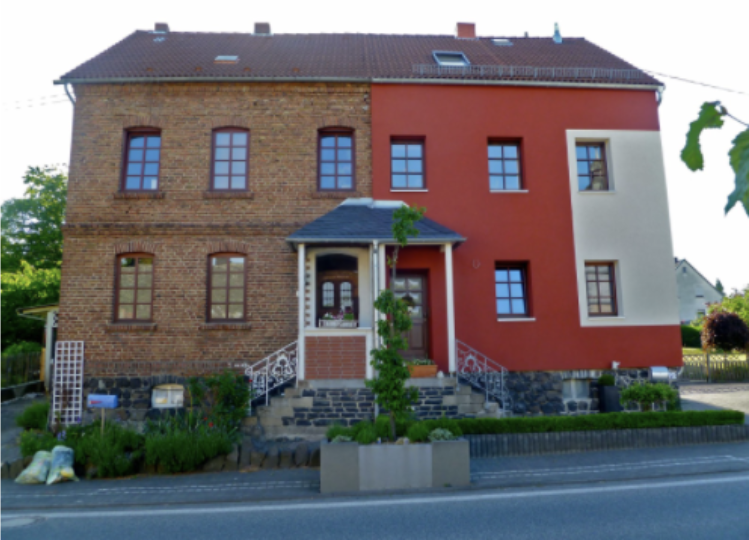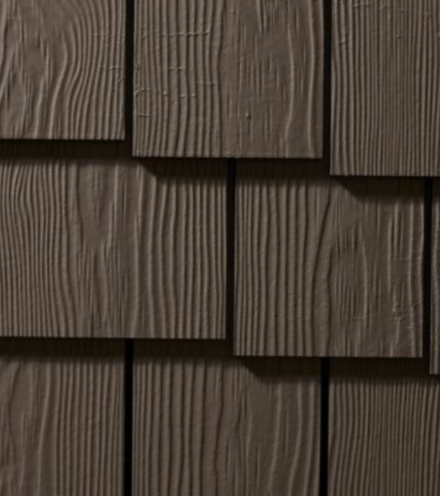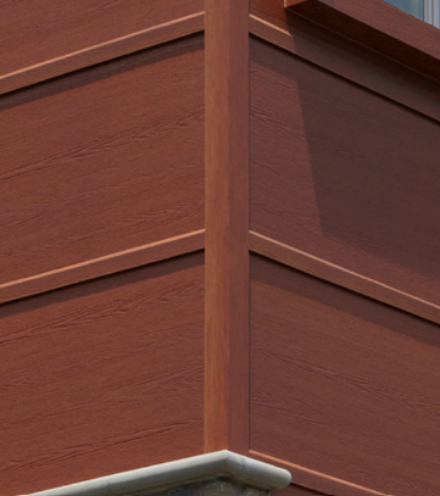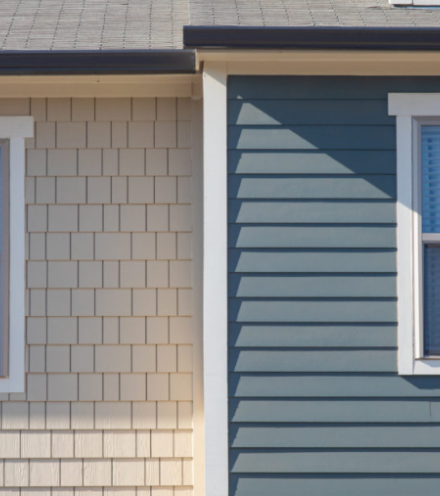
When it comes to building a successful commercial property, both form and function must be accounted for. EIFS cladding was originally perceived as an upgrade from older materials, but it has recently taken a turn for the worse in the eyes of contractors. This has sent many builders scrambling for more reliable EIFS alternatives.
With both design potential and practicality in mind, there’s one building material that proves to be much more valuable than EIFS cladding systems, and provides much more reliability and design possibilities.
With a better understanding of the struggles facing EIFS cladding, contractors can become better prepared and make smarter construction decisions for their building projects.
EIFS: Like Stucco, but Better
EIFS cladding refers to exterior insulation and finishing systems, but it is better known by the nickname of synthetic stucco, which sufficiently sums up this popular building material. Though it is used in residential buildings, too, it’s more commonly used in commercial structures.

So, what is EIFS cladding? To sum it up, EIFS cladding is a reengineered form of stucco that addresses some of the most common complaints that arise with traditional stucco, like cracking and lack of energy efficiency. Most EIFS cladding consists of a polymer-based system. Expanded polystyrene boards are attached to exterior sheathing with a layer of reinforced fiberglass mesh painted with a base primer.
EIFS systems were originally hailed as an improvement from traditional stucco for a few reasons. Primarily, cracking is reduced, thanks to reinforced control joints. In addition, EIFS cladding systems are much more energy-efficient than standard stucco, which can prove beneficial in the commercial property sphere where eco-friendly alternatives are sometimes incentivized.
Common Complaints with EIFS
EIFS cladding can be considered a new and improved version of stucco, however, it’s far from perfect. In fact, many contractors are familiar with the long-term complaints that come up with EIFS cladding. Some argue that EIFS cladding is even more susceptible to destructive damage when it’s not installed properly, meaning that a skilled EIFS cladding installation professional is recommended to ensure proper insulation.

Among the most common complaints with EIFS cladding, moisture resilience remains a significant concern for contractors. When installation flaws are present, EIFS cladding can literally begin to fall apart within a few years, especially when moisture seeps into the material. Seasonal rainfall can be enough to initiate damage on commercial properties.
EIFS Design Limitations
In addition to moisture damage, EIFS cladding is known for its design limitations. Although the possibilities for ornamentation are much more abundant than traditional stucco, EIFS cladding still falls short in the design department.
Arches, columns, and keystones allow extra ornamentation, but the surface appearance of EIFS cladding remains quite uniform. You can certainly paint it in different colors, but the texture and finished appearance is pretty uniform, meaning you can’t achieve more textured aesthetics, like wood grain patterning or sleek, modern styles.

Quick Fixes for EIFS Cladding
For contractors seeking EIFS alternatives, it’s important to note that there are many additional components that can be introduced to fix common EIFS cladding concerns. For example, adding decorative trim using another material is one way to expand the design possibilities.
Contractors can also look for enhanced ventilation methods or add waterproofing systems to a structure to make EIFS cladding more weather-resistant, especially addressing the flashing. These can be complicated and burdensome additions to make, which is why most contractors swap cladding materials altogether.
A Better Alternative: Fiber Cement
All in all, swapping EIFS cladding systems for more durable materials from the beginning proves to be the best approach to accomplishing a reliable exterior build with plenty of aesthetic possibilities. Wood, vinyl, and standard stucco all tend to be outdated materials with their own list of worries. The best EIFS alternative is a straightforward product that ticks all the boxes: fiber cement.
Fiber cement products are weather-resistant, low-maintenance, and durable, making them ideal for commercial cladding. Side by side, fiber cement products are much more reliable than EIFS cladding systems, and they measure up as a superior product that can simplify commercial building projects and perform consistently in the long run, regardless of weather challenges like rainfall and elevated humidity.

Plus, where EIFS cladding is limited in its surface appearance, fiber cement products are available in an abundance of styles, colors, and patterned textures to customize commercial properties with precision. Whether the building project calls for an urban-chic finish or a casual and cozy facade, fiber cement products offer an incredible range for accomplishing a variety of exterior design goals that simply aren’t possible with EIFS cladding. Innovative companies like Allura offer wood-look cladding constructed from fiber cement, expanding the aesthetic opportunities even more.
Why mess with outdated EIFS alternatives or quick fixes to make a sub-par product better? Contractors can skip straight to a proven EIFS alternative that outperforms all these other materials.
Contact Allura today to find the fiber cement cladding that’s the most practical and aesthetically pleasing for your next commercial project.




